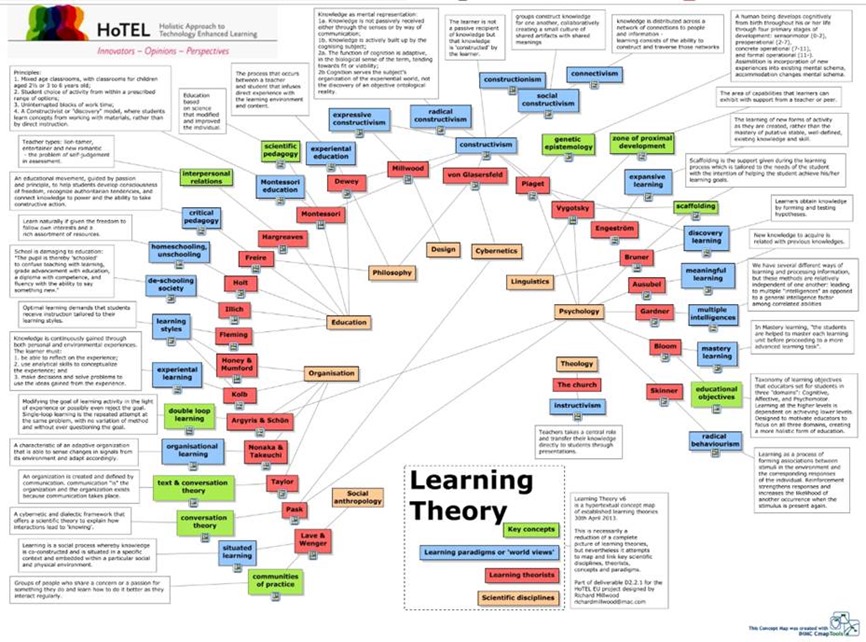Originally posted on September 20, 2021 @ 2:56 PM
What Theory of Learning is Embedded in Your Investigation Methodology?
It is always entertaining watching Safety turn complexity into simplistic discourse. Most recently we have seen a slight change in language about understanding event analysis, investigations and event review. It is good that the language has shifted in some quarters from blame and ‘root cause’ to learning but what is meant by learning?
We learned quite some time ago that schooling can be best described as ‘banking’ (Freire https://envs.ucsc.edu/internships/internship-readings/freire-pedagogy-of-the-oppressed.pdf ), the behaviorist sum of outputs for inputs. Schooling is neither education or learning. Similarly, the cognitive repetition of data sometimes called ‘parrot learning’ is not learning. The shifting of algorithms sometimes called ‘machine learning’, is not learning.
Educators and the Learning Profession know that speaking simplistically about learning demonstrates a naïve approach and usually indicates that learning is not being discussed but rather ‘schooling’ or ‘banking’. We see this also when Safety talks about ‘values’ and ‘ethics’. Often these words are used but never defined or involve discussion of the unconscious. The discussion is often propositional, seeking compliance with pre-established values that are either determined as ‘common sense’ or deontological as ‘natural’ or ‘god-given’ such as ‘check your gut’.
This is NOT how Educators understand learning. The following semiotic Figure 1. 32 Learning Theories Every Teacher Should Know is a good starting point to discuss definitions of learning (https://www.teachthought.com/learning/a-visual-summary-the-most-important-learning-theories/ ). Indeed, blogs like teachthought (https://www.teachthought.com/ ) are useful start for anyone in safety seeking a transdisciplinary approach to investigations and learning.
Figure 1. 32 Learning Theories Every Teacher Should Know
One of the educational philosophers that has shaken up the teaching profession in recent years is Gilles Delueze (https://monoskop.org/Gilles_Deleuze ). Delueze methodology is known as ‘transcendental empiricism’ and has a focus on knowing outside of the common faculties of perception. For Delueze, if you have not included the unconscious in your definition of learning, you are not talking about learning. Similarly, in Ethics Delueze thought that repeating a set of ‘identities’ or values was similarly not Ethics. Cultural reproduction is not learning. Similarly, unless one includes a discussion of embodiment in learning, one is not discussing learning. This is why computers don’t and cannot ‘learn’. Unless we are discussing the human embodied unconscious, we are not discussing ‘learning’. Delueze emphasized semiotics as critical to learning and that the language of signs (poetics, images, writing, music, the language of dreams and art) were essential to a definition of learning.
If all one is talking about is the realization of new data, that’s not learning. I discuss the nature of learning much more in my book with Roy Fitzgerald: Tackling Risk, A Field Guide to Risk and Learning (https://www.humandymensions.com/product/tackling-risk/ )
So much discourse in safety involves using such terms as ‘ethics’ and ‘learning’ without definition. Even the AIHS BoK Chapter on Ethics doesn’t define its own ethic (deontological). There is no chapter in the AIHS BoK on Learning.
For Delueze, the nature of ‘becoming’ is foundational to an ethic of learning and that we cannot know who we are becoming (in personhood) without the acceptance of risk. He equates the notion of ‘common sense’ as a technical confirmation of what one already knows, and is therefore not learning. In fallibility, learning most often occurs when we are harmed!
When Delueze (https://journals.euser.org/files/articles/ejser_may_august_17_nr_1/Jurate.pdf ; https://gread.mediadata.website/342873-FILE.pdf ) discusses learning he uses the semiotics of origami and the rhizome to explain its ‘wickedity’ (unsolvable complexity).
Learning is not just about a shift in cognition. Unless learning is inter-corporeal and inter-affective (https://www.readcube.com/articles/10.13128%2Fphe_mi-20119 ) in an unconscious embodied Mind (whole person), then you are not talking about learning. A shift in cognition is just a shift in data and is common to the schooling idea inbuilt into a brain-centric theory of personhood. Without unconscious embodied movement of Mind, there is no learning. Delueze described schooling as ‘a student’s discovery of solutions to problems posited by teachers’. When Delueze discusses learning he invokes a discussion too of Wisdom, something one rarely reads in the pages of Safety. Wisdom also must be practical, ethical and embodied. Delueze also discusses a stark difference between morality and ethics and this difference is essential to his theory of learning.
So, what can we learn from this?
When Safety uses the word ‘learning’ what does it mean?
When Safety uses the word ‘ethics’ what does it mean?
When we teach a SPoR approach to Investigations in the module SEEK (https://cllr.com.au/product/seek-the-social-psychology-of-event-investigations-unit-2-elearning/ ) we explore the nature of learning, ethics and the unconscious as foundational to understanding analysis of event review. I have written about learning and investigations previously:
https://safetyrisk.net/learning-leaning-and-learning-in-safety/
https://safetyrisk.net/investigations-and-learning/
https://safetyrisk.net/the-fear-of-learning-in-risk/
https://safetyrisk.net/learning-to-reject-zero/
https://safetyrisk.net/you-cant-believe-in-zero-and-learning-at-the-same-time/




Do you have any thoughts? Please share them below